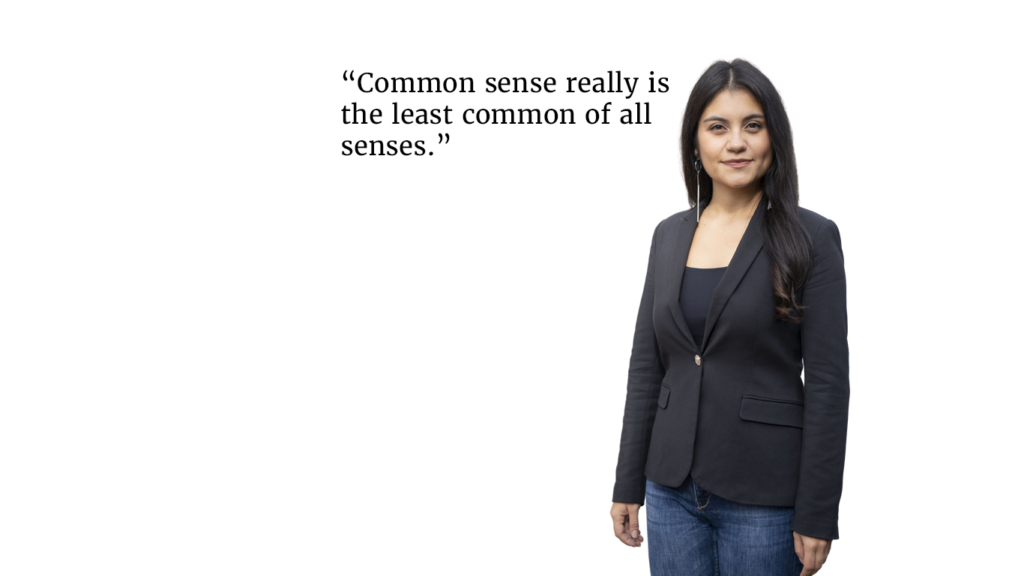Digging deeper in our decision-making, it is clear we make unreasonable decisions. Are you aware of the ironies that surround you? asks Lundagårds student life columnist, Catalina Ordoñez.
Lately, I have perceived more than ever that we live in a world ruled by ironies. In my everyday life, I see examples of how people, me included, ignore what is logical and do the opposite. Almost as if we are irrational beings who consciously ignore common sense.
In my home country Colombia, for example, the government decreed a tax-free shopping day in the middle of the pandemic. Imagine a Black Friday-style crowd at the peak of the second wave of infections, when logic begs us to distance ourselves and stay home. And if rational decision making does not work with those who make the policies, it would be logical to believe that people would prioritize their health, not tax-free shopping. But common sense really is the least common of all senses.
However, even the academic world – the space of knowledge – is not free from decisions that defy reasoning. In a course I’m taking on artificial intelligence and cognition, I’ve found that no matter how rational the arguments are, people will still act irrationally. Recently, we discussed the collection and analysis of data from our online use, and the unethical way in which this information is used to modify our behavior, generate greater consumption and digital dependence. But ironically, colleagues, classmates and I have used social media to share our criticism of the same business model that is tracking our posts to influence our future behavior. Furthermore, if you are reading this right now, you have probably found it through social media, even though common sense suggests us to avoid it.
What has caught my attention the most regarding the ironies that surrounds us, is being part of the strategic communication faculty, which daily experiences problems due to lack of communication. As a student representative, I have heard on multiple occasions complaints of situations that could be avoided if the department had better internal communication processes. I find it curious that lecturers who know in detail the theories to develop successful communication interactions, have such difficulties to apply them in their daily lives. A faculty that should have outstanding communication practices has difficulties dealing with feedback, maintaining open channels of dialogue and keeping coherence in its information – basically communication lesson 101. I guess to ´practice what you preach´ is harder than it seems.
Logic is thrown out the window these days. Risking your life for a discount, criticizing the medium through the medium, and world-class academic experts being victims of the mistakes they teach. Isn’t it ironic?









